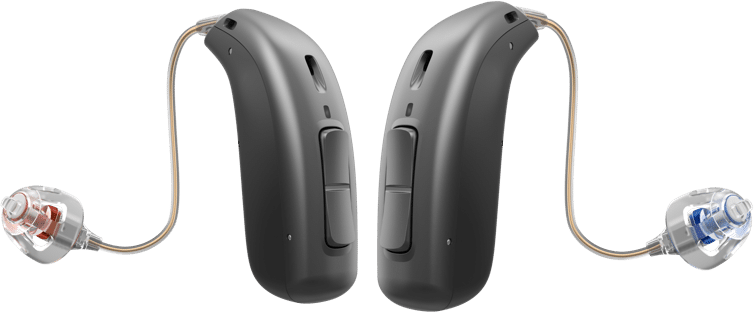
Experiencing Hearing Loss?
If so, you are not alone. Hearing loss is one of the biggest health concerns in the U.S. It is the third most commonly reported physical condition, following arthritis and heart disease. It affects roughly 20 percent of the American population and can strike people of all ages.
Top 5 Symptoms of Hearing Loss
- Having trouble following conversations with background noise.
- Missing part of the conversation.
- Feeling like others mumble when they speak.
- Turning the volume on the television up.
- Avoiding social gatherings.

Considering Hearing Aids
For most individuals with hearing loss, the use of a hearing aid can provide an enormous amount of benefits, more than simply improving your hearing. Below are the benefits many patients see when they decide to finally seek treatment for their hearing loss.
- Improved General Health
- Improved Professional Success
- Improved Emotional Well-being
Patients who treat their hearing loss have also been shown to have higher quality of life and self-esteem than those who do not seek treatment.
A study of 2,000 patients with hearing loss found that up to a third of them saw improvements in their:
- Romance
- Sense of safety
- Sense of humor
- Self-confidence
- Mental health
- Feelings about self
- Emotional health
- Sense of independence
- Physical health
- Work relationships

Hearing Aid Upgrade
Hearing Aid technology is rapidly advancing. If your hearing aids are more than a few years old, it may be time to consider an upgrade. Today’s products offer a unique and personalized experience to suit your lifestyle.
Bluetooth and Wireless Technology
Bluetooth technology® allows devices to communicate with one another. Bluetooth-enabled hearing aids let users stream signals from electronic devices directly to their aids, improving their versatility and convenience.

Balance
A balance disorder is a condition marked by the symptoms of feeling unsteady or dizzy. Even while standing, lying or sitting still, a person with a balance disorder will feel as if they are moving, spinning or floating. While walking, people may feel as if they are tipping over.
In order to determine the appropriate treatment plan for you, your audiologist will need to evaluate and diagnose your symptoms. Once determined, your audiologist will target the underlying condition in order to reduce or eliminate the symptoms. Options include:
- Medications (antihistamines, sedatives, antibiotics or steroids).
- Physical or occupational therapy.
- Surgery.
- Repositioning exercises.
- Vestibular retraining programs.
- Lifestyle modifications (such as dietary changes and elimination of alcohol and nicotine).
